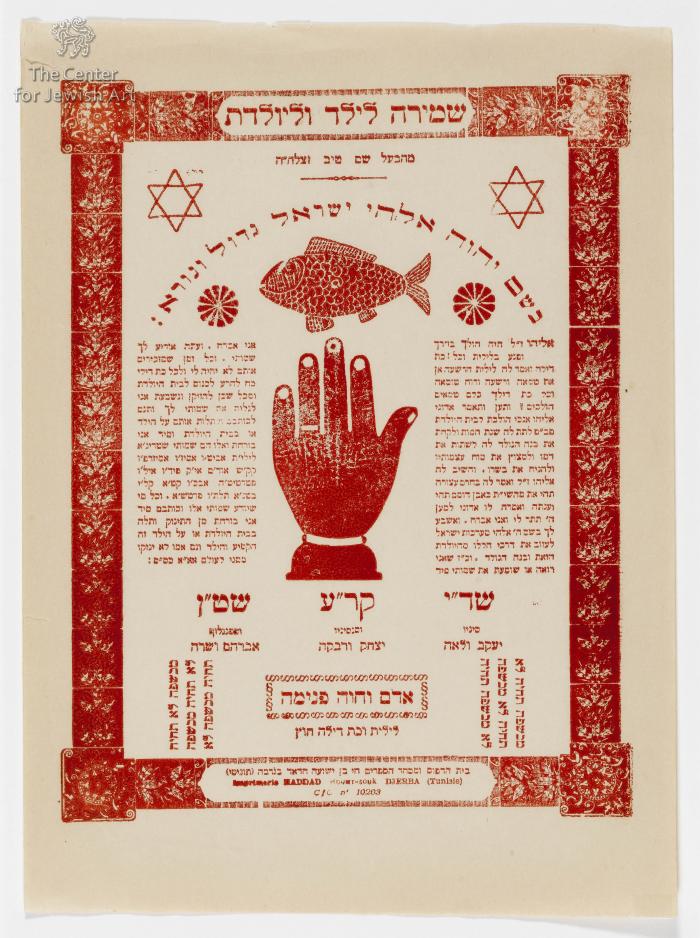
The following description was prepared by William Gross:
Printed by one of the main Jewish presses on Djerba, the firm of Haddad, this amulet depicts a fish, the large hamsa in the center, and the Magen David. Everything is printed in bright red ink, a color that itself lent amuletic value. The talisman is a birth amulet for the protection of both mother and child. Its main invocation is for the presence of the prophet Eliyahu. This connection was very common in North Africa with its many holy societies, named for the prophet Eliyahu, that sponsored the circumcision ceremony. In addition, there is the listing of the patriarchal couples and specific texts against Lilith. As in so many birth amulets, the names of the three angels Sanoi, Sansanoi, and Samgalaf are invoked to ward off the evil intentions of Lilith. The large hamsah at the center proclaims the protective intention of the amulet. At the top, in small letters, it is indicated that the text of this amulet originated with the "Ba'al shem tov", the founder of the Hassidic movement in Judaism. This European Hassidic source is an indication of the influence of European customs on North African Jewry during the late 19th and 20th centuries.
Publisher: Imprimerie Haddad



